I track my fuel use semi-religiously. I have used the fuel log book at bcgasprices.com (also known as Gas Buddy) since May 2006 to track the price, fill, and odometer of every single gas purchase. It’s a great habit to get into. It really makes you think about the gas you’re using and it can help push you to try to conserve. After 12 years and 2 cars, I’m now to the point where if I miss recording a fill-up or lose a receipt it bugs me for at least a week, until the next fill. Usually I record it immediately when I get back in the car on my iPad or iPhone. I think I missed 2 this year. Darn! 🙂
Gas Buddy has a “senior analyst†named Dan McTeague who is often quoted in the media, including recently, opining about the trends in gas prices. He is often right. Unfortunately he also seems to be of the opinion that gas prices should stay low forever and we don’t need to raise them in order to deal with climate change, because CO2 is good for plants and makes coal. He blocks people who challenge him on climate change.
At any rate. High prices destroy demand for oil. It is that simple. And if we are going to reduce our fossil fuel consumption fast enough to avoid a climate change catastrophe then prices will need to rsie faster than they already are. My data from my own habits show that the constant rise in prices has caused me to invest in vehicles with better fuel economy to reduce my costs, and emissions. The bigger change I made though, was getting on the bus.
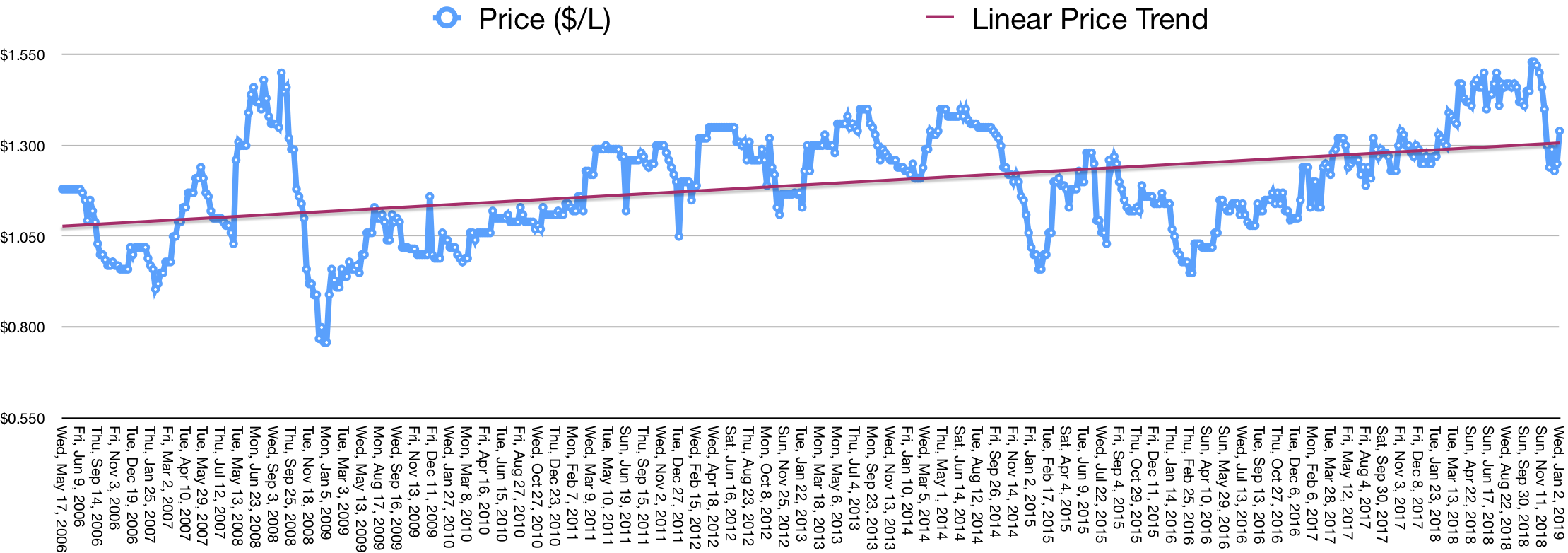
Here’s this year’s data, plus some comparison with past years.
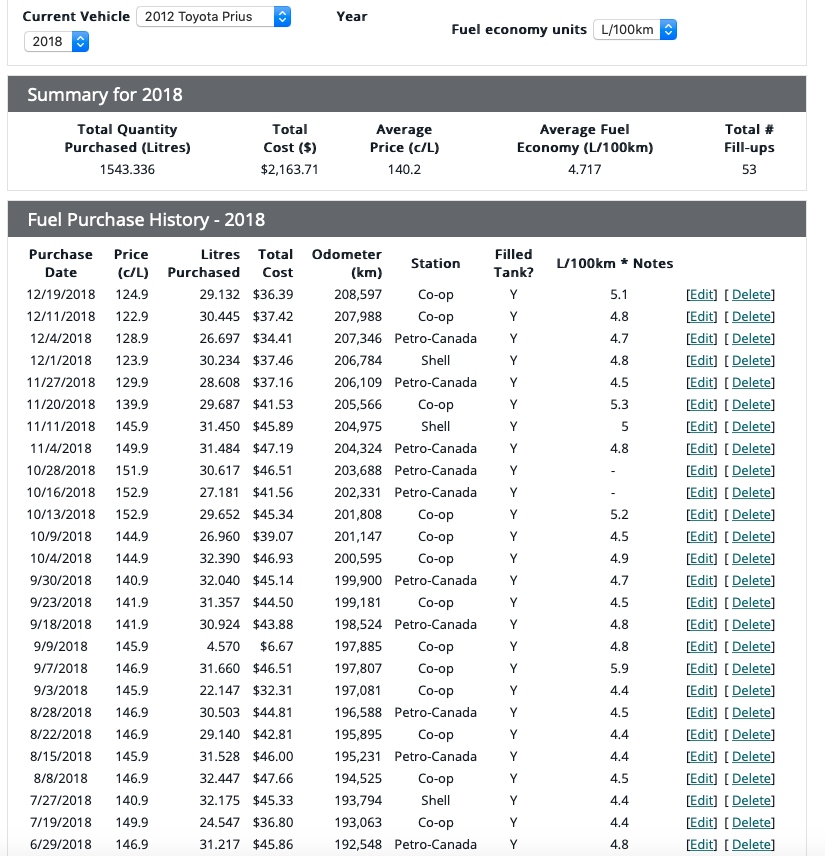
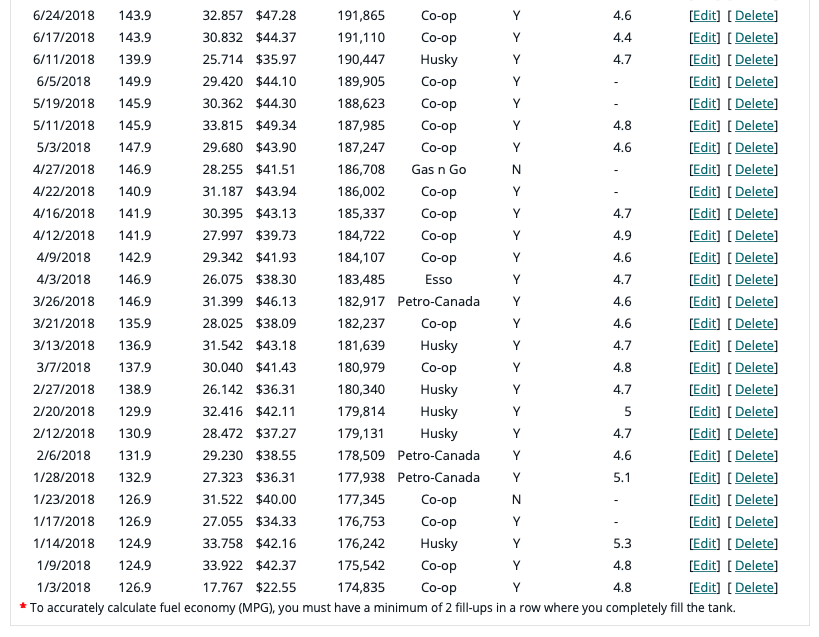
In the two lists below, I’ve included the annual summary data from bcgasprices and if I miss any fills I’ve approximated annual totals using the car odometer and average price and fuel mileage.
Gas Buddy Summary Data:
- Year : Litres Gas : Ave Cost ($/L) : $ Total : Odometer : Mileage (L/100km)
- 2018 : 1,543L : $1.402 : $2,163 : 34,378km : 4.72
- 2017 : 1,462L : $1.255 : $1,833 : 31,669km : 4.67
- 2016 : 1,562L : $1.086 : $1,696 : 34,543km : 4.68
- 2015 : 1,483L : $1.144 : $1,697 : 33,715km : 4.51
- 2014 : 1,458L : $1.296 : $1,888 : 32,433km : 4.48
- 2013 : 1,301L : $1.301 : $1,691 : 29,330km : 4.41
- 2012 (Prius) : 574L : $1.229 : $698 : 13,145km : 4.57
- 2012 (Echo) : 744L : $1.293 : $962 : 12,967km : 5.65
- 2012 (Total) : 1318L : $1.261 : $1,660 : 26,112km : 5.11
- 2011 : 1,480L : $1.230 : $1,825 : 27,028km : 5.50
- 2010 : 1,610L : $1.068 : $1,719 : 30,053km : 5.48
- 2009 : 1,363L : $1.009 : $1,364 : 29,387km : 5.34
- 2008 (May-Dec) : 1,027L : $1.236 : $1,244 : 25,708km : 5.24
- 2007 (Jan-Aug) : 1,351L : $1.070 : $1,444 : 25,537km : 5.45
- 2006 (May-Dec) : 936L : $1.065 : $976 : 21,649km : 5.10
Calculated Costs and CO2 Emissions at 2.3kg of CO2 per Litre (in Tonnes)
- Year : Litres : Cost : Tonnes of CO2
- 2018 : 1,623L : $2274 : 3.73 TCO2
- 2017 : (no missed fills) : 3.36 TCO2
- 2016 : 1,617L : $1,756 : 3.72 TCO2
- 2015 : 1,521L : $1,740 : 3.50 TCO2
- 2014 : (no missed fills) : 3.35 TCO2
- 2013 : (no missed fills) : 2.99 TCO2
- 2012 (Prius) : (no missed fills) : 1.32 TCO2
- 2012 (Echo) : (no missed fills) : 1.71 TCO2
- 2012 (Total) : (combined) : 3.03 TCO2
- 2011 : 1,486L : $1,827 : 3.42 TCO2
- 2010 : 1,646L : $1,759 : 3.79 TCO2
- 2009 : 1,569L : $1,583 : 3.64 TCO2
- 2008 (est. Annual 40,509km) : 2,123L : $2,624 : 4.88 TCO2
- 2007 (est. Annual 39,057km) : 2,129L : $2,278 : 4.90 TCO2
- 2006 (est. Annual 35,180km) : 1,794L : $1,911 : 4.13 TCO2
The numbers I am most interested in of course are the cost, the fuel economy I’m getting from the car, and the CO2 emissions.
Here are some graphs of the fuel economy of the two cars. I’ve included both L/100km and US MPG since some folks aren’t used to L/100km where lower numbers are better, versus US MPG where higher numbers are better. (Click the graphs for larger versions)
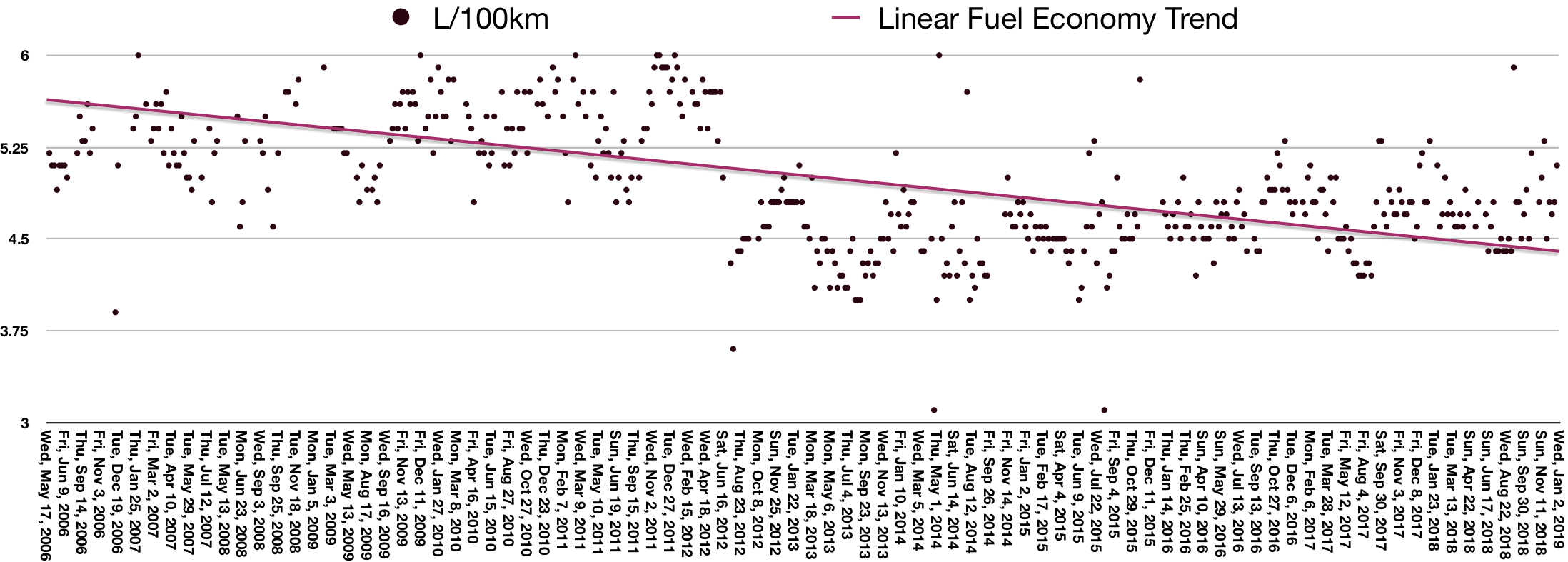
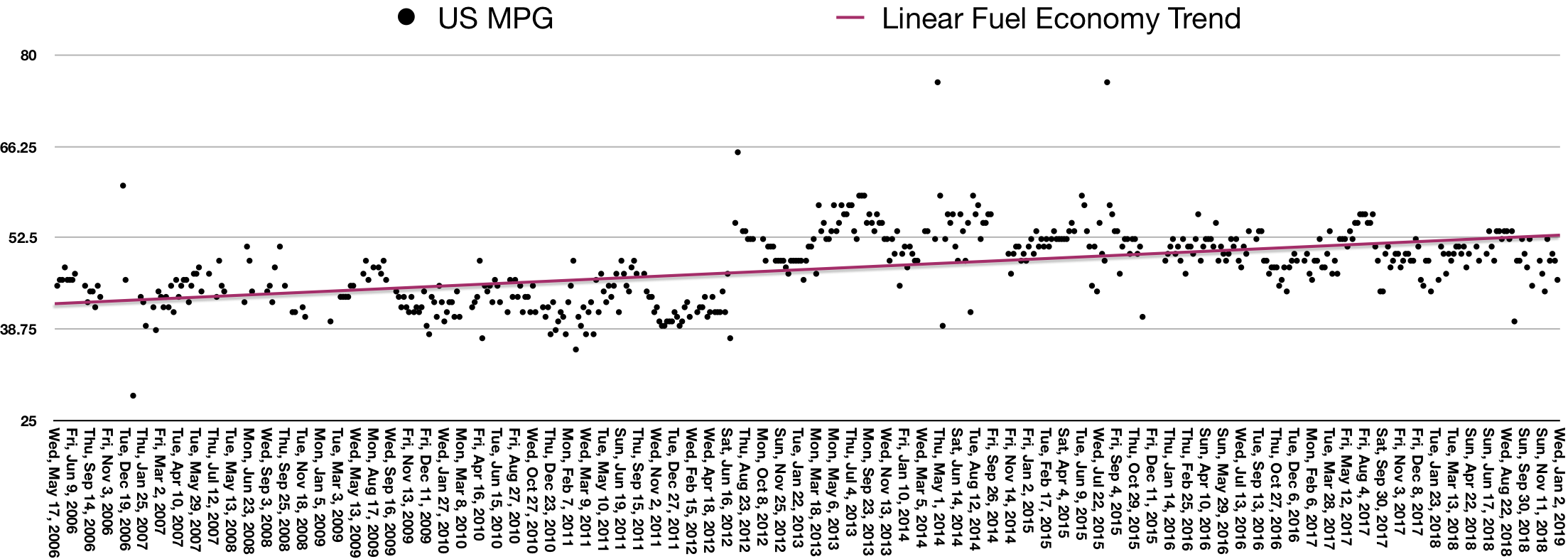
Before you ask, yes, those fuel economy values of 3L/100km or nearly 80USMPG are valid 🙂 In fact, when I got the Prius C, I remember there was an “80MPG!” sticker on the windshield. Of course they didn’t tell you that you’d only get that kind of mileage once in a blue moon, but hey, it’s there. And I’d probably have seen it more by now if I used the car primarily for City rather than highway driving. 🙂
For those who don’t know. I live in Port Alberni, BC and work at VIU in Nanaimo, BC. It’s an 80km / 59 minute commute but I try to avoid driving the full distance and instead drive about 40 minutes to Parksville where I take the #91 and #15 RDN Transit buses to get to and from work the rest of the way. I’ve done this since 2009. From 2009 to about 2013 I drove to Qualicum Beach, only 30 minutes but the RDN modified their route in 2013 making the longer bus trip impractical. So now I drive to Parksville.
This year I believe I’ve averaged about 3 days per week taking the bus due to work at VIU and as Councillor for the City of Port Alberni (2015 – 2018) . I was not re-elected this year so I hope to be on the bus 4 days a week on average and I will also be carpooling a couple days a week to the bus stop so I hope to get my mileage below 30,000km again.
I’m pretty happy with the trend. I knew when I was elected as a City Councillor in Port Alberni that it would mean having to drive more to make meetings and events. But even with that extra driving in the past four years I was able to stay under the amount of fuel I used in my old Echo Hatchback (2006-2012) thanks to the bus and the Prius hybrid’s fuel economy.
As advertised, the Prius C gets slightly better fuel economy in city driving than on the highway. My stats bear this out. I did a few long trips to Whistler and Victoria in 2018 which would have increased the mileage and the decreased the economy. I also got new tires, both winter and summer. I did not buy “low profile” tires that would have maximized fuel economy. I don’t think I would have made back the investment by the time the tires wore out. Tires do have the biggest impact on fuel economy after driving habits though. So I think that is the reason for the slightly worse fuel economy numbers in addition to my own habits getting a little weaker.
In the long term the battery in the Prius is starting to show its age so I’m getting a little less assist than I used to. Add it all up that is why average mileage has gone from 4.4L/100km in 2013 to 4.7L/100km in 2018 (53.5 USMPG to 50.1USMPG). Still not bad considering the car has seen 209,000km.
We also have a Toyota Matrix as a 2nd car. We try to use the Prius anytime I am home and anytime we travel outside of Port Alberni but our son recently started in a hockey league, so we are either going to have to get very creative with our packing to get his stuff in, or use the Matrix when he needs to be out of town.
It might be worth our while to finally get a hitch or roof rack for the Prius for a little extra storage. I used to have a hitch on the Echo that we used mostly for a bike rack. I’ve missed having one on the Prius C. The Matrix only gets about 9.5L/100km. Half as good as the Prius. Since we got it in 2013, we’ve only put 38,268km on it. That’s as much mileage in 5 years as I put on the Prius in one! But at 9.5L/100km that’s 3,635L of gas, which is more than what I put in the Prius in the past two years. So ya.. we’ll definitely continue to maximize how much we use the Prius.
That’s it for another year. We’ll see what 2019 brings! Let’s hope it is higher prices so more alternatives are created, and more people can be released from the incredible expense of owning a car (or two!). I know, not a popular opinion. But all users of fossil fuels, producers and consumers, must be compelled to use less and find alternatives. Carbon taxes must be used to create those alternatives. Both business leaders and science agrees is the best way we can affect change in the time we have.
On Monday, this bus will be nearly full of students and employees. But why isn’t it full this morning? If all the people stopped in cars (most by themselves) around me at this moment were in this bus, it would be full, and all those emissions would be gone too and our roads and highways would not be so crowded, dangerous, and expensive. Those people also would be saving money on gas, insurance, and repair bills. This is an easy opportunity being wasted. Low hanging fruit left on the tree. Let’s get started.
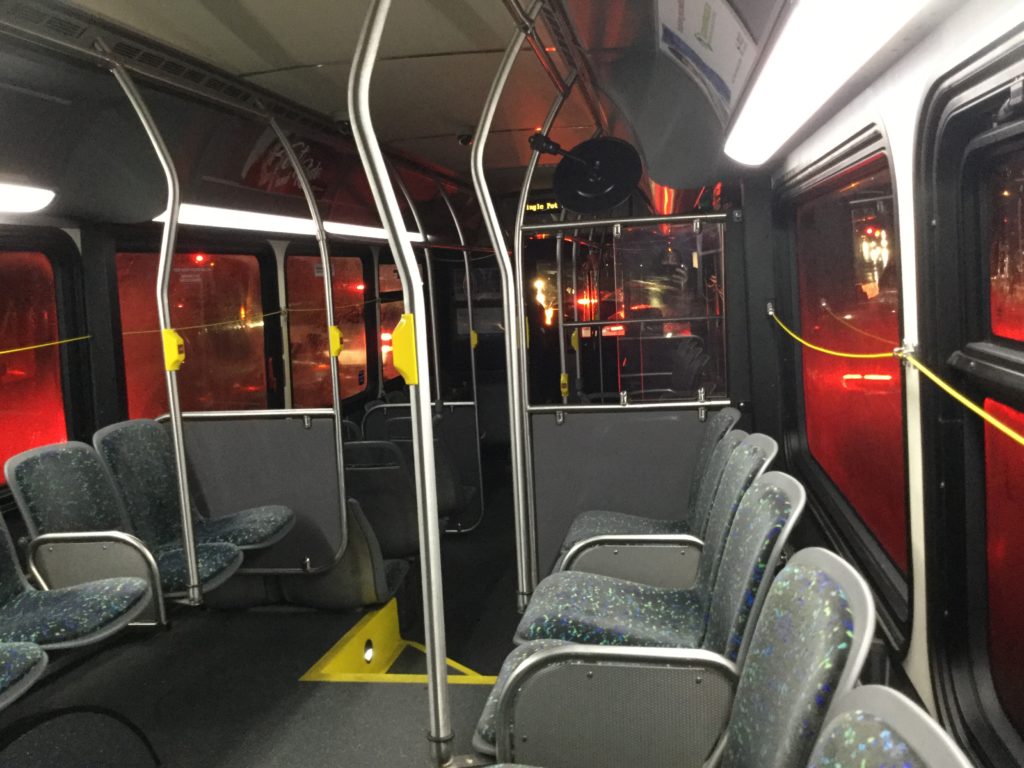
P.S. Before some screams “DIESEL BUS”. The RDN system uses CNG exclusively. A rare moment where I support moving to natural gas temporarily. However, the future, is now. No reason for the next big bus purchase by BC Transit to be all electric.

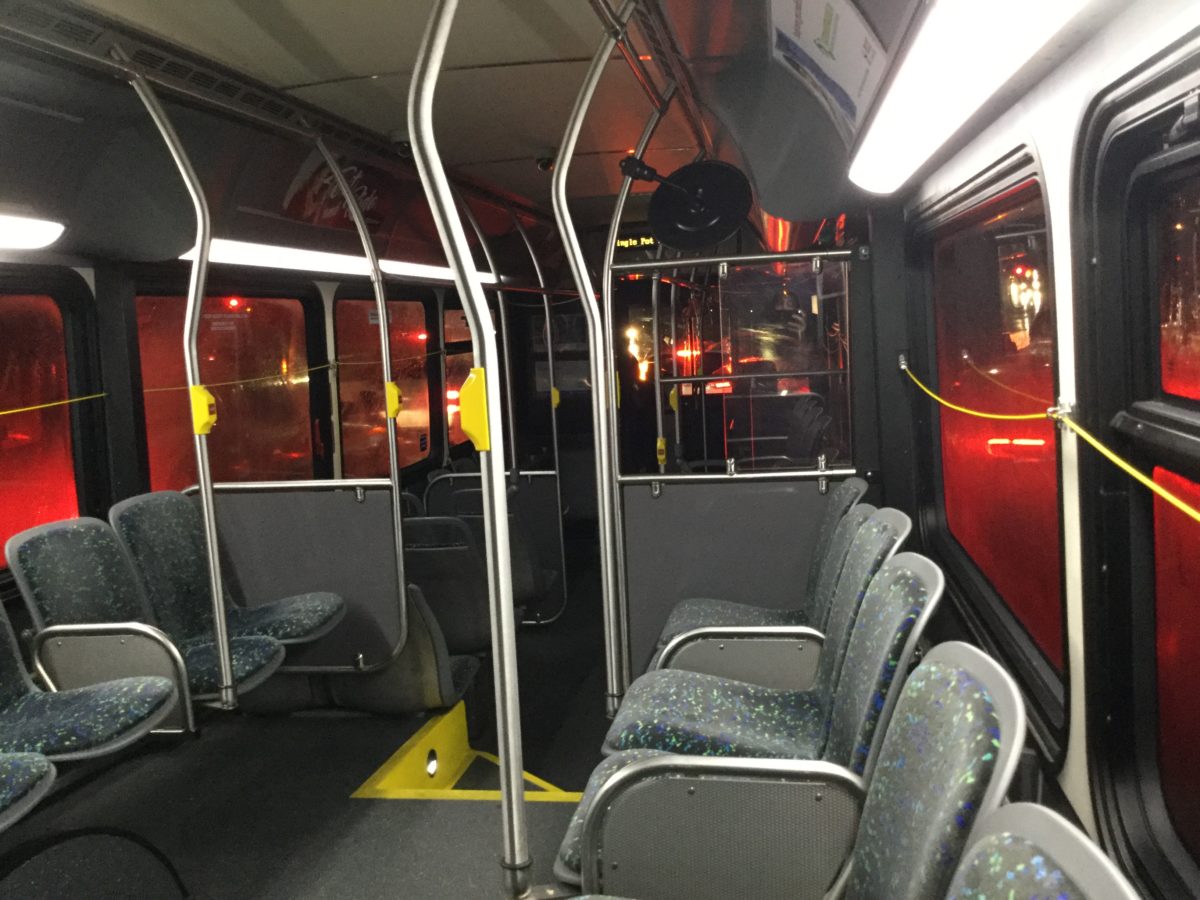
McTeague, “Gas Buddy”, it all sounds so low-key, so helpful, so friendly. Any guess as to who funds his paycheques? I suspect that he and Tom Fletcher have a mutual admiration society, cradled in the arms of big oil.
You wouldn’t be referring to the Fraser Institute or some other tentacle of the Koch Brothers would you!? 😉